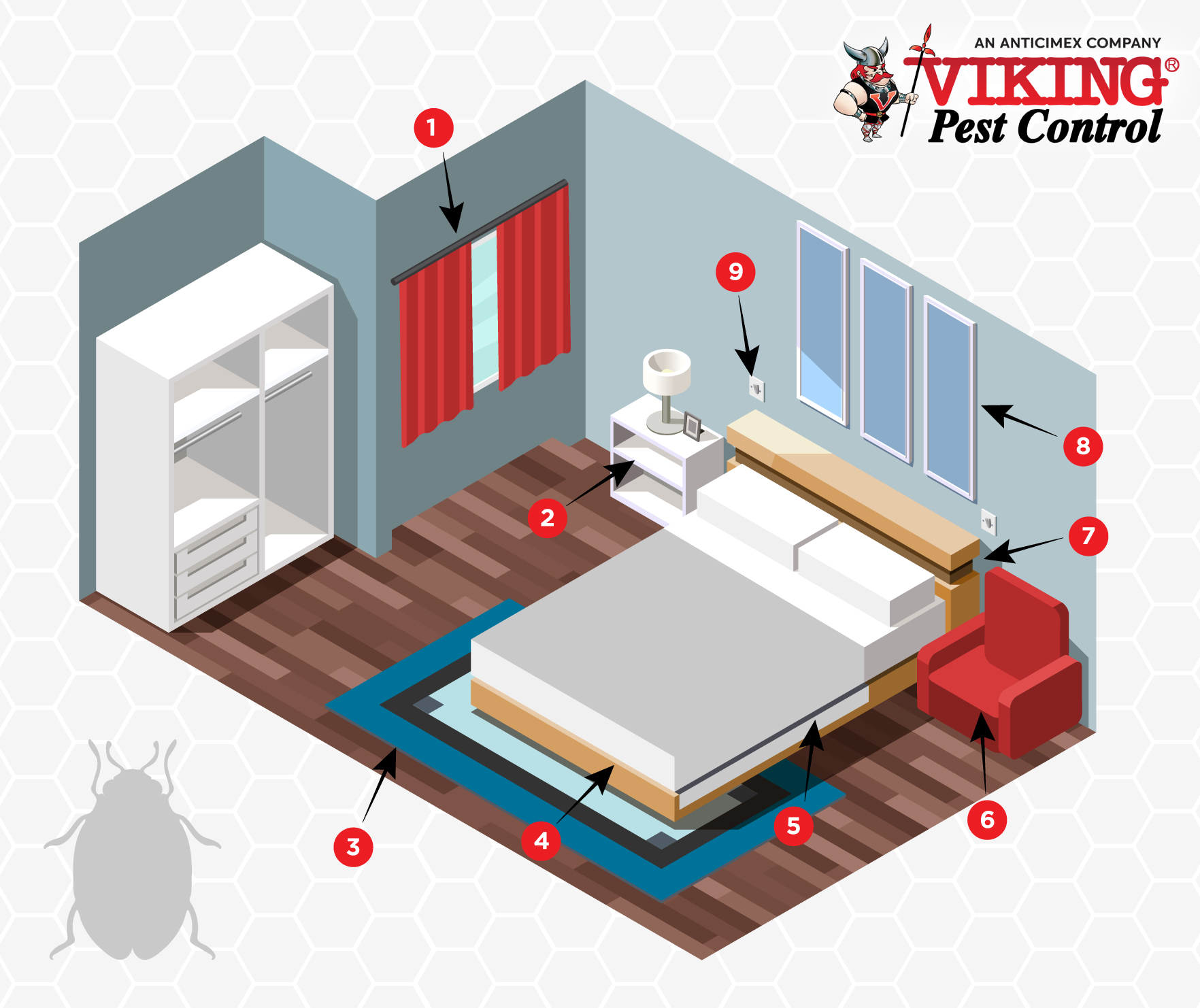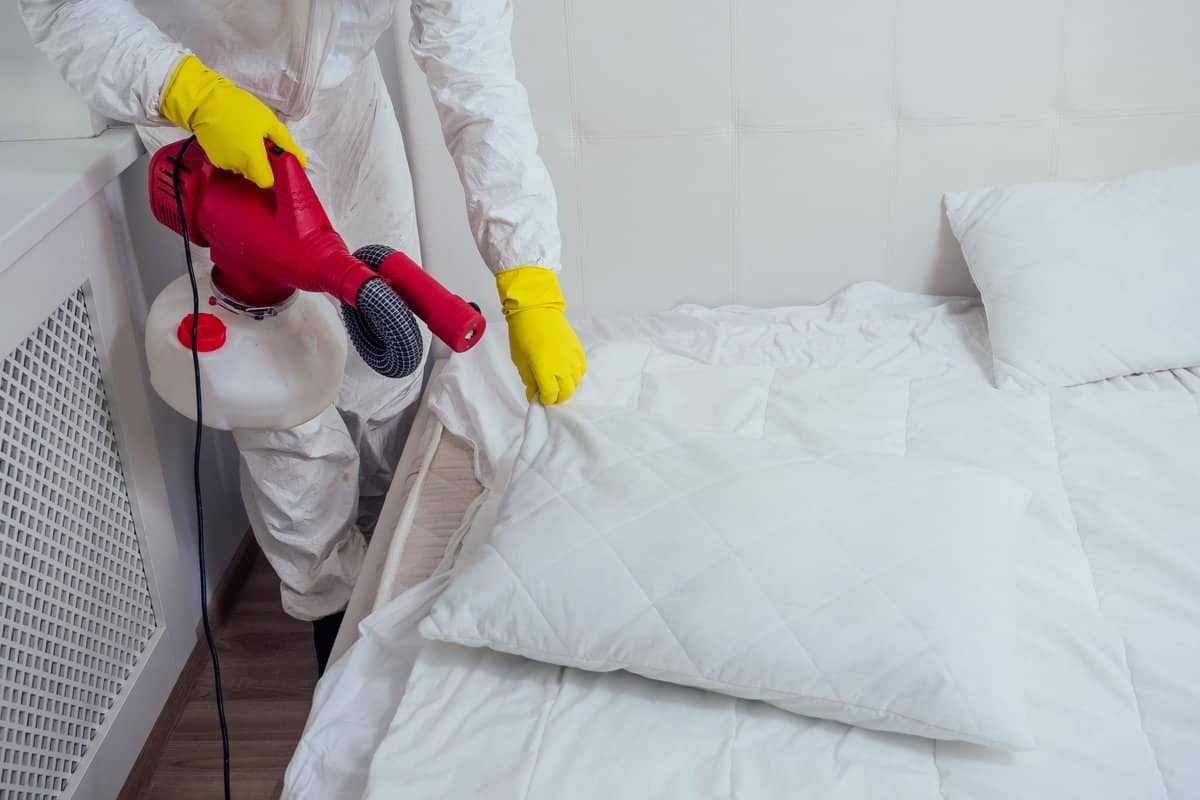Expert Kings Bug Control Services Cincinnati OH
Wiki Article
Kinds Of Insect Control: Which Method Is Right for Your Problem?
When faced with a bug problem, the choice of a suitable approach for parasite control is vital in effectively taking care of the circumstance. From chemical treatments to biological solutions, there exists a variety of methods that can be employed to address various kinds of bugs. Each technique includes its very own collection of considerations and advantages, making the decision-making process a nuanced one. Comprehending the subtleties of each method and evaluating their compatibility with the particular parasite infestation handy is crucial for achieving long-lasting success in parasite management. By exploring the different sorts of pest control techniques offered, people can make enlightened choices tailored to their distinct conditions, ensuring a more sustainable and efficient end result in pest removal.Chemical Parasite Control
Chemical insect control entails making use of synthetic or normally acquired chemicals to manage and get rid of pest populaces efficiently. This approach is typically made use of in farming, forestry, and property settings to deal with a vast array of pests, consisting of weeds, rats, and pests. Using chemical pesticides can provide quick and targeted solutions to pest infestations, making it a preferred choice for numerous people and companies.One of the vital advantages of chemical bug control is its ability to promptly eliminate pests, reducing the threat of damage to crops, residential or commercial property, and human health and wellness. By utilizing specific chemicals that target specific parasites, this approach can properly manage problems while reducing injury to advantageous organisms and the environment when used appropriately.
Nonetheless, the usage of chemical insect control also raises issues concerning possible adverse effects on non-target varieties, water resources, and human health and wellness. It is critical to adhere to security guidelines, apply chemicals responsibly, and think about different bug control methods to reduce these dangers and make sure lasting pest administration practices.
Organic Bug Control
Biological bug control, also understood as biocontrol, uses living organisms to decrease and handle parasite populaces naturally. By utilizing the bug's all-natural killers or pathogens, biological insect control offers a ecologically friendly and sustainable solution to pest administration.
Mechanical Pest Control
Using hands-on and physical techniques to handle parasite populations, mechanical insect control offers an alternate technique that does not depend on using living organisms or artificial chemicals. This approach includes making use of obstacles, traps, or other gadgets to literally hinder or eliminate pests. By obstructing insect entrance factors or establishing up traps to capture them, mechanical parasite control can properly lower problems without introducing chemicals right into the atmosphere.One typical example of mechanical pest control is using mesh displays on doors and windows to stop pests from getting in buildings. This basic yet effective method serves as a physical barrier, keeping insects out while enabling for correct air flow. In addition, devices like mousetraps, fly swatters, and ultrasonic repellents drop under the mechanical parasite control group.
While mechanical pest control techniques can be labor-intensive and require routine tracking and upkeep, they supply a environmentally pleasant and sustainable solution for handling pest infestations. By incorporating different mechanical techniques, building proprietors can create a comprehensive parasite control approach that decreases dependence on chemical pesticides.
Physical Insect Control

Some typical physical parasite control techniques consist of using obstacles such as internet or screens to stop parasite entry, traps to capture and get rid of bugs, and hand-picking to physically eliminate parasites from plants or structures. Furthermore, methods like warm therapies can be made use of to manage insects like bed bugs by raising the bee pest control temperature to levels that are lethal to the pests.
Physical pest control is especially beneficial in incorporated parasite administration (IPM) approaches, where multiple insect control methods are incorporated for reliable pest monitoring while reducing the usage of chemicals. By using physical parasite control techniques, people can efficiently attend official site to insect infestations with marginal environmental impact.
Integrated Insect Management
When applying physical pest control techniques as component of bug monitoring strategies, Integrated Pest Monitoring (IPM) becomes a thorough strategy that leverages different methods to properly control pest populations. IPM concentrates on long-term prevention of pests with a mix of biological, cultural, physical, and chemical tools tailored to particular pest issues. By integrating multiple control strategies, IPM aims to minimize the dangers linked with insects while also minimizing dependence on chemical services.One secret element of IPM is the focus on monitoring and evaluating pest populaces to figure out the most proper control approaches. This aggressive method enables for early treatment and targeted approaches, leading to more efficient insect administration. Additionally, IPM advertises eco-friendly methods by prioritizing non-chemical control techniques and just using pesticides as a last hope.
Conclusion

By using the parasite's all-natural predators or pathogens, biological pest control uses a eco friendly and sustainable solution to pest administration. - Kings pest control cincinnati oh
Using physical and hands-on approaches to manage parasite populaces, mechanical bug control provides an alternate technique that does not rely on the usage of living organisms or synthetic chemicals.An effective method to managing pest populations without relying on chemical or organic approaches includes the use of physical pest control strategies.When applying physical parasite control methods as component of parasite administration approaches, Integrated Parasite Administration (IPM) arises as a detailed technique that leverages various methods to effectively regulate pest populations. Chemical bug control entails the use of pesticides, biological bug control utilizes all-natural killers, mechanical pest control entails physical barriers, physical insect control consists of capturing or removing bugs, and incorporated bug management integrates multiple techniques for a holistic strategy to pest control.
Report this wiki page